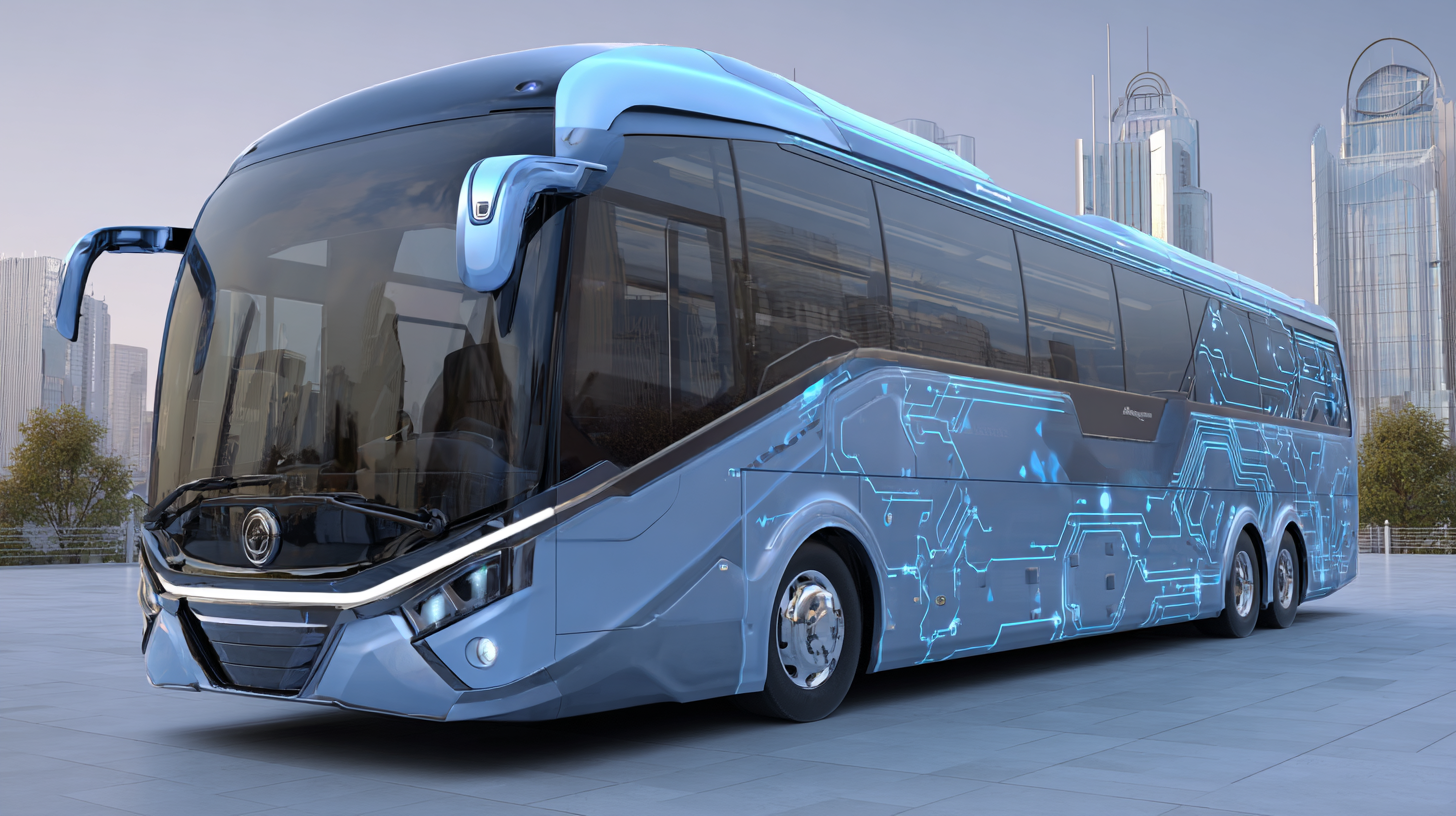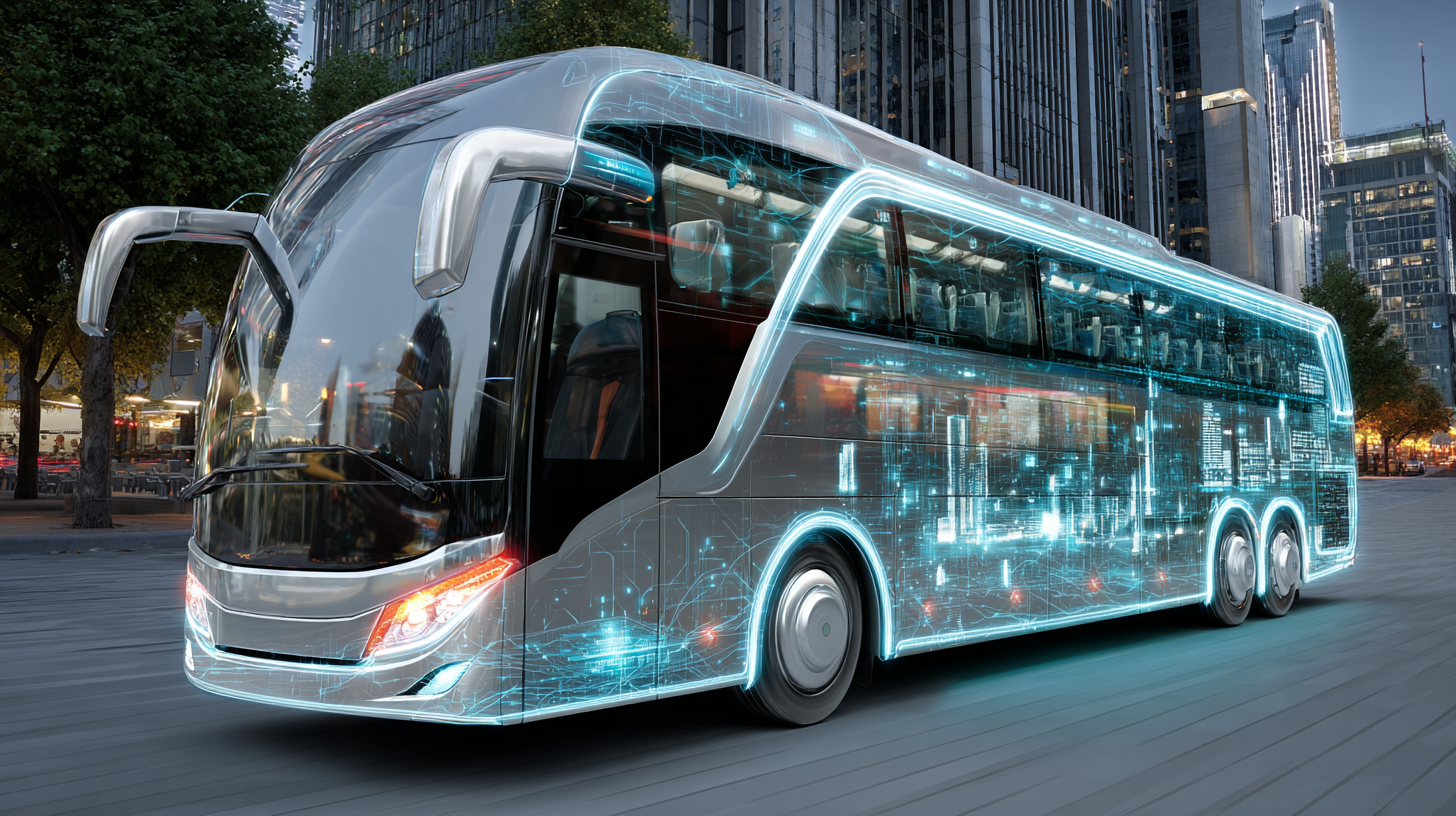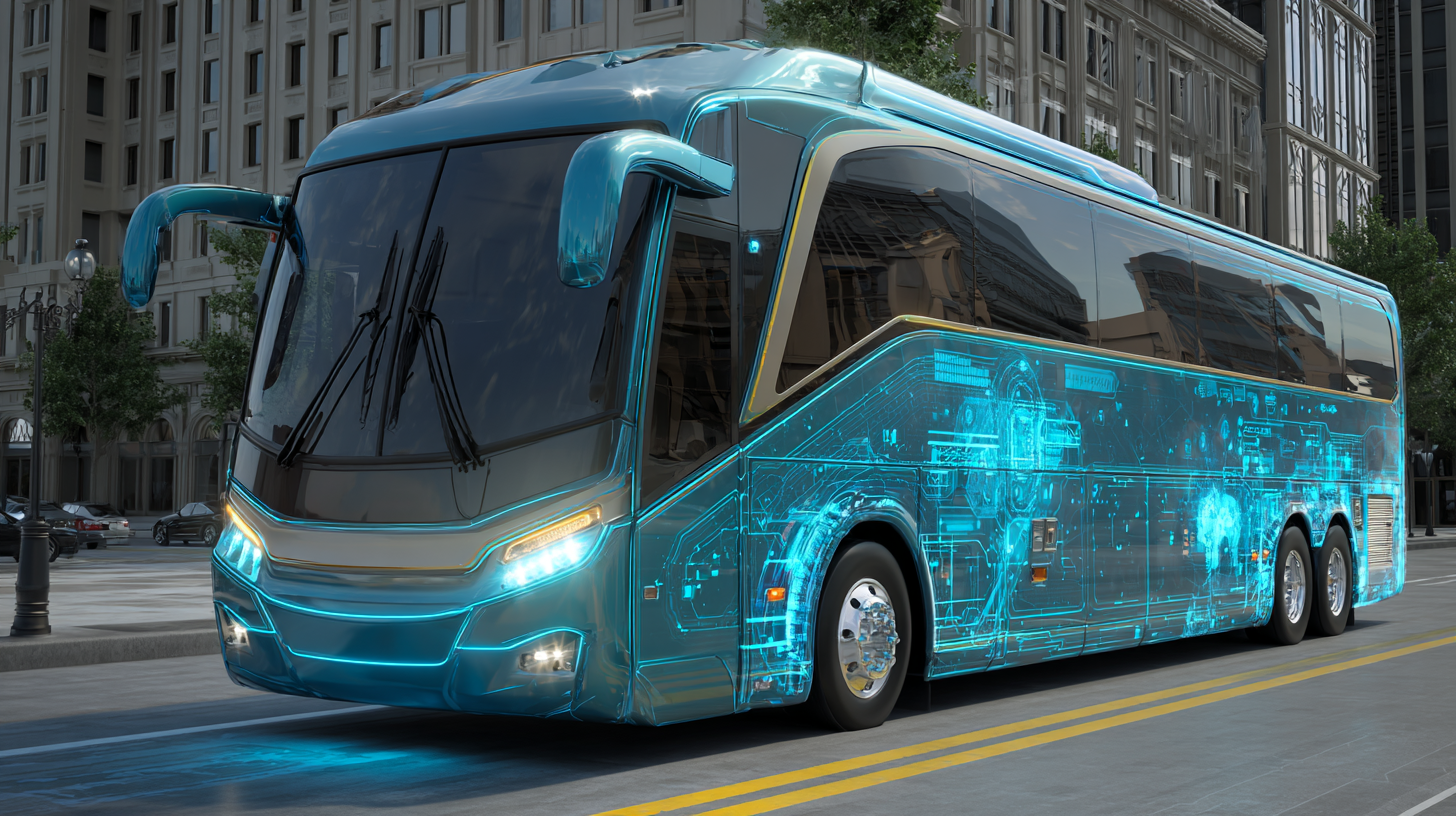Navigating the Future of Coach Bus Transportation by 2025 with the Ultimate Guide to Industry Innovations
As we look toward the transformative landscape of
Coach Bus Transportation by 2025, it is essential to explore the innovative
solutions that are reshaping the industry. With advancements in technology, sustainability efforts,
and evolving passenger expectations, the coach bus sector is poised for significant change.
This blog serves as the ultimate guide to navigating these innovations, providing insights into how
companies can adapt and thrive in this dynamic environment.
 From integrating smart technologies to enhancing safety measures
and improving overall passenger experience, the future of Coach Bus Transportation is bright and full of opportunities.
Join us as we delve into the strategies and solutions that will define the journey ahead,
ensuring that both operators and travelers benefit from the advancements that are on the horizon.
From integrating smart technologies to enhancing safety measures
and improving overall passenger experience, the future of Coach Bus Transportation is bright and full of opportunities.
Join us as we delve into the strategies and solutions that will define the journey ahead,
ensuring that both operators and travelers benefit from the advancements that are on the horizon.
Emerging Technologies Shaping the Future of Coach Bus Transportation
As we look forward to 2025, emerging technologies are reshaping the coach bus transportation industry, driving innovation towards sustainability and efficiency. The unveiling of next-generation electric and zero-emission vehicles at industry events highlights a significant shift towards greener public transport options. The push for electric intercity buses is gaining momentum, with a growing number of models entering the European market. This transition not only aligns with environmental goals but also meets the rising demand for efficient transportation solutions.
Tip: For operators looking to stay ahead in this evolving landscape, investing in training programs for staff on new technologies can increase operational efficiency and enhance safety.
Additionally, advancements in electronic platforms and advanced driver-assistance systems (ADAS) are becoming standard in modern bus designs. These features not only improve safety but also enhance the overall travel experience for passengers. As manufacturers continue to innovate and comply with updated safety regulations, the industry will likely see a greater emphasis on integrating these technologies into their fleets.
Tip: Consider partnering with technology providers to ensure your fleet is equipped with the latest innovations. This collaboration can further position your company as a leader in the sustainable transportation movement.
Understanding Regulatory Compliance for Coach Bus Companies
As coach bus companies look toward 2025, understanding and adhering to regulatory compliance is crucial in navigating the evolving landscape of the transportation industry. Recent data from the American Public Transportation Association indicates that over 70% of coach bus operators are prioritizing compliance with federal and state regulations to enhance safety standards and operational efficiency. These regulations not only govern vehicle maintenance and driver qualifications but also encompass environmental standards aimed at reducing emissions, which are becoming increasingly stringent.

In addition to safety and environmental concerns, compliance with evolving technology regulations presents a significant challenge. The implementation of GPS tracking systems and telematics is encouraged by the Federal Motor Carrier Safety Administration to improve safety monitoring and fleet management. A report by the Bureau of Transportation Statistics noted that companies utilizing advanced technology in compliance measures have reported a 15% average reduction in operational costs. Keeping abreast of these regulations will not only help coach bus companies avoid costly penalties but also position them as leaders in a competitive market, ultimately ensuring sustainable growth in the years leading up to 2025.
Innovative Features to Look for in Modern Coach Buses
As the coach bus transportation industry gears up for 2025, modern innovations are reshaping the travel experience. The integration of advanced technologies is making buses not only safer but also more comfortable for passengers. One notable innovation is next-generation front bumper technology, which enhances vehicle safety by providing improved protection in the event of a collision. Additionally, the latest designs are adding aesthetic value with collaborations from renowned design firms, ensuring that buses are both functional and visually appealing.
When choosing a modern coach bus, consider the following tips: ensure the safety features include the latest advancements in structural design and crash protection. Look for buses that utilize eco-friendly technologies, such as electric powertrains, to minimize environmental impact. Furthermore, prioritize comfort by selecting buses equipped with ergonomic seating, enhanced climate control systems, and onboard entertainment options to elevate the travel experience.
The transformation is well underway, with electric buses significantly increasing in usage across urban centers, contributing to greener cities and a reduction in carbon footprints. As innovations continue to unfold, staying informed about the latest capabilities in coach buses will allow travelers to enjoy a comfortable, safe, and sustainable journey.

Sustainable Practices in Coach Bus Operations for a Greener Future
In an era of heightened environmental awareness, the coach bus transportation industry is embracing sustainable practices to pave the way for a greener future. By 2025, it's projected that over 50% of new buses will incorporate electric or hybrid technology, significantly reducing carbon emissions and dependency on fossil fuels. According to a report by the American Public Transportation Association (APTA), adopting electric buses could reduce greenhouse gas emissions by 70% compared to traditional diesel vehicles. This shift not only aligns with global sustainability goals but also enhances operational efficiency.
Tip: Implementing regular maintenance schedules for buses can further improve fuel efficiency and reduce emissions. A well-maintained bus is known to operate up to 15% more efficiently, directly impacting the environmental footprint.
In addition to technology, the industry is also focusing on sustainable materials and eco-friendly practices in operations. Initiatives such as using reclaimed materials in bus manufacturing and optimizing routes for fuel efficiency can lead to significant savings and a reduced carbon footprint. As reported by the International Bus Benchmarking Group (IBBG), these practices can help companies achieve up to a 30% reduction in operational costs while contributing to a more sustainable landscape.
Tip: Conducting driver training programs focused on eco-driving techniques can enhance fuel efficiency by an average of 10%. Encouraging drivers to adopt smoother acceleration and braking not only conserves fuel but also promotes a greener approach to transportation.
Innovations in Coach Bus Transportation by 2025
Tips for Implementing Industry Innovations in Your Coach Bus Business
In the rapidly evolving landscape of coach bus transportation, embracing innovative strategies is crucial to success. One effective approach is adopting Agile methodologies, which have proven successful in the tech industry for over 25 years. By implementing Agile principles, coach bus businesses can enhance their operational efficiency and responsiveness to changing market demands. This approach allows companies to adapt to customer needs more swiftly, thereby improving service quality and overall satisfaction.
Moreover, leveraging artificial intelligence can significantly transform the way coach bus companies streamline their operations. From introducing autonomous vehicles to utilizing AI for better route optimization and customer service, the potential of AI is immense. With large-scale investments directed towards innovative projects, including zero-emission initiatives, the practicality of these technologies is becoming a reality. By staying informed on industry innovations and being flexible in their implementation, coach bus operators can navigate the future with confidence and resilience.
Navigating the Future of Coach Bus Transportation by 2025
| Innovation Type | Description | Benefits | Implementation Tips |
|---|---|---|---|
| Electric Buses | Introduction of electric-powered buses to reduce emissions. | Lower operational costs and environmental impact. | Invest in charging infrastructure and training staff. |
| Smart Ticketing Systems | Mobile apps and contactless payment solutions for ticket purchase. | Increased customer convenience and data collection. | Partner with tech companies for seamless integration. |
| Real-Time Tracking | GPS-based tracking for passengers to monitor bus locations. | Enhanced customer satisfaction through transparency. | Implement an application with tracking features. |
| Safety Innovations | Advanced safety features like lane assist and collision detection. | Reduced accidents and improved driver safety. | Regular training and updates for drivers on new technologies. |
| Eco-friendly Practices | Implementing recycling and waste management policies on buses. | Improved public image and compliance with regulations. | Engage staff and passengers in sustainability initiatives. |




